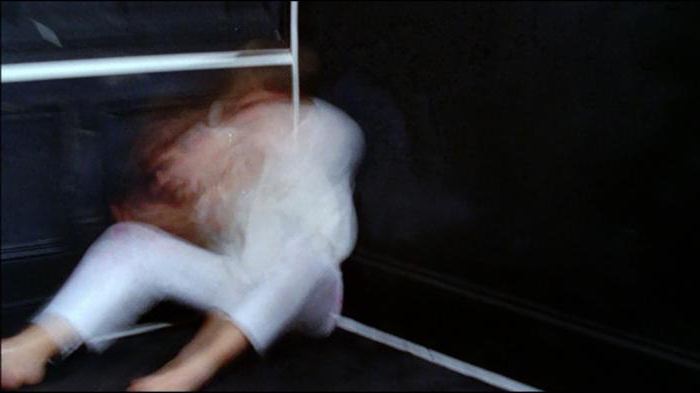The Herostratus complex is a term used in modern psychiatry as applied to persons suffering from a sense of their own inferiority. For self-realization and achievement of fame, they draw attention to their personality with provocative aggressive acts - they destroy art objects, values, socially useful objects, torment animals and people.
Term history
The Herostratus complex was named after the famous Greek who lived in the fourth century before the beginning of our era. This inhabitant of Ephesus in 356 set fire to the sanctuary, built in honor of Artemis - one of the most beautiful temples of that time, rightly ranked among the seven wonders of the world. Residents of the city jointly decided that the name of the vandal should be forgotten, nevertheless Herostratus is mentioned in a work written in the same century by Theopomp.
It so happened that the name of the Greek became a household name, and today the Herostratus complex is the term by which it is customary to describe those who seek public recognition at any cost, without looking at the laws and accepted norms of behavior. The expression "Herostratic glory" has a pronounced negative character.
It is interesting
According to legend, the event that laid the foundation for the name of the phenomenon of vandalism in this form occurred on the night when Alexander the Great was born.
When modern analysts, psychologists try to understand what prompted Herostratus to such an act, many appeal to the conditions of his life. Of course, ordinary people will put it more simply - this is a flawed person, but such a description is unacceptable for science. From history it has been noted for certain that Herostratus belonged to merchants, was neither rich nor famous, did not have any outstanding qualities and achievements. The desire to attract attention to himself at any cost ate it from the inside so much that it pushed him to an act that inscribed the Ephesian name in the history of our humanity for millennia. Probably, if he knew how many followers would follow in his footsteps, Herostratus would have been happy.
About terminology
Glory of Herostratus is a term applied to the negative in its direction of fame in the society of a person who is distinguished by pride and a tendency to destruction. The general public about this simply say "this is a flawed person," but the more correct, correct, polite expression is Herostratus.
At present, Herostratus can be called that which thoughtlessly and unreasonably destroys what is valuable to society (inanimate, living).
Risk group
It is no secret that people with an inferiority complex in their bulk are adolescents. As psychologists say, this period is characterized by the manifestation of the considered and other complexes, which, as they grow older, either remain defeated in the past or are suppressed. However, in a small percentage of cases the trait becomes permanent, it is almost impossible to eliminate it, especially if you do not resort to therapy. Others say that adolescents are literally a factory producing complexes, but some of them are caused by social influence.
Often, mental trauma leads to a rather characteristic behavior: a person demonstratively strives for destruction, tries to shock the public with his actions. This manner allows you to stand out from the crowd and draw attention to yourself, earn fame. Some resort to this behavior in the hope of earning sympathy (to the public at large or to a particular individual). Incidentally, the weak manifestation of this complex includes a tendency to fight, risk. Many psychologists are firmly convinced that the Herostratus complex and vandalism are two closely related concepts.
What is it about?
The Herostratus complex in psychiatry is closely associated with an understanding of the nature of vandalism. At the same time, they talk about the destruction of social values (culture, material) that does not make sense, and the desecration of objects. Often suffer from public places - transport, porches. To combat this phenomenon, laws are even enacted (however, they work rather poorly). The culprit caught at the crime scene (if one can prove the guilt) will have to pay a fine - 50-100 minimum wages. Sometimes the value is different, it all depends on the specific decision of the court and the salary of the guilty person. They may prescribe compulsory or correctional labor; there is a risk of being arrested.
As can be seen from statistics, most often the destructive influence of aggressive personalities are objects, at home. This is largely due to the presence of fragile objects. Psychologists say that mental trauma prompts people to destroy what attracts attention with fragility and weakness. At the same time, a sensation of pleasure brings a noise emanating during the action. The process becomes not just an attempt to attract attention, but also a method of obtaining pleasure from screams, ringing, testifying to life changes.
When it all goes on
There are many cases when a feeling of one’s own inferiority pushed people not only to damage property, but to destroy someone’s life. Small and defenseless are affected first of all: pets, young children. Recently, a special revelry has been associated with the possibility of publishing materials on the Internet: the modern Herostratus remains unrecognized, while the entire planet knows about its activities. To attract attention, such people are ready to scoff and painfully kill kittens, puppies, children - in short, all those who cause compassion among the masses.

As mentioned above, the concept of an inferiority complex is more characteristic of minors than adults. If we analyze the statistics on the occurrence of the Herostratus complex on the Internet, it becomes clear: the initiators are often children and adolescents. But adult flayers, sadists do not draw attention to their activities. Based on this, psychologists say: the former seek recognition, while the latter seek precisely the very process of destruction of the living. Of course, none of the motives justifies the behavior of people, but understanding their logic simplifies the search for the culprit and the choice of effective punishment to protect others.
How to be remembered by others?
Herostratus Complex is a medical term. But in itself the word is known and heard by many. In a word, the ancient Greek vandal achieved what he was striving for. But does anyone living now know who designed the long-suffering temple of Artemis? Only specialists in ancient Greek history and architecture possess such information. Incidentally, the creation of this masterpiece required much more effort than setting it on fire!
Even the ancient Greeks understood very well that evil glory has been preserved for centuries much better than positive, since actions are designed to shock the public. This is also observed in our time: for example, many users post the same pets on the Internet, but in the news they only talk about torturers. Who knows people involved, for example, in the treatment of hand-picked people from the streets? Their names remain in the shadows.
What to do
The modern reality is this: the more terrible a person’s act is, the more famous he gets. Studies have shown that the widespread publicity of the first case of execution in an American school led to a repetition of this situation, and more than once. According to analysts, the best way to fight is to switch the focus of public attention from the negative actions themselves to laws that need to be adopted and enforced to protect public peace.
The more, the longer and with pathos and anger people talk about sadists and vandals, the more they provoke them to repeat actions, and others to follow the same path in order to obtain their share of fame. On the other hand, if everyone perfectly understood that a quarter of an hour of “likes” on the Internet and participation in a news bulletin would be punished by years in a penal colony or prison, there would probably be much less people willing to try themselves in this field.
Alfred Adler's Approach
The inferiority complex in the teaching of this psychoanalyst well reveals the essence of the Herostratus phenomenon. As this scientist declared in his works, the term should be understood as a strong self-doubt, not letting go of a person, coupled with low self-esteem. Such a person is characterized by a constant sense of superiority over him of individuals from the social environment.
Classical symptoms are the desire to attract the public, focusing on suffering, fears. Quite often, such people have speech defects, and intense tension is constantly tormented. At a young age, many try to get away from their complex through status symbols, bad habits. Often, it is the inferiority complex that explains the arrogance of a person.
Depression, family and inferiority complex
A sick person is the object of attention of his relatives. This also applies to people with depression. Understanding oneself as a center becomes a source of strength for an individual. Complaining eternally, such a person attracts attention and thereby becomes stronger internal. Such behavior suppresses healthy people around, as the specificity of the existing culture gives power, the power of pain.
According to Alfred Adler, if we look at power in the human community, then we should say that babies are in power, able to control the lives of adults, while remaining themselves not subject to it.
What leads to the formation of the complex?
As a rule, this is provoked by physical disabilities or excessive parental care about the welfare of the child - in such conditions, the child simply can not learn how to independently solve the problems that arise on the path of life. However, complexes also arise in the opposite situation, when a child feels a lack of attention on the part of older generations: this gives rise to self-doubt.
If a young child is quite worried about his abilities, he needs to be supported. Approval helps to effectively cope with any emerging inferiority phenomena, and this, in turn, prevents the emergence of the Herostratus complex. But criticism with or without - a direct path to the formation of a flawed personality, aggressive and inadequate. As a German scientist noted, inferiority is a psychopathological syndrome, persistent and provoking a variety of deviations.
What to do?
As can be seen from the experience of modern psychologists, the very fact of the existence of an inferiority complex is recognized by many people, but not everyone is trying to deal with it. An additional complication is provoked by the fear of error: a person seems to be striving to improve the situation, but is afraid to do something that will lead to failure, therefore he does not take measures at all. Psychologists know exactly how to get rid of an inferiority complex without harming their own psyche. To do this, they propose to return to childhood and analyze the situations that injured at that time. It is recommended that three cases be recalled and formulated with respect to them, which thoughts and feelings accompanied that moment, how long afterwards the worries about what happened bothered.

The success of the analysis is due to the ability to look at what has happened from the perspective of an adult, experienced, intelligent person. The complex was created by circumstances that a person could not influence at that moment, but in a retrospective analysis one can realize who was actually right and to blame at that moment. All negative beliefs that accompany a person through life require reevaluation. To do this, it is recommended to form a table of two columns, writing out negative beliefs in one half and the opposite ones in the other. If you manage to learn to think positively about yourself, it will already be a serious step towards combating complexes.